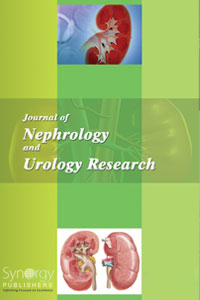
Does the NPHS1 c.349G>A Polymorphism Affect Outcomes in FSGS Patients? (Pages 9-13)
Dustin A. Jacobson1, Elana Hochstadter1, Ajay P. Sharma1, Peter Ainsworth2 and Guido Filler1,3
1Departments of Pediatrics, Children’s Hospital, London Health Sciences Centre, University of Western Ontario; 2Department of Biochemistry and 3Pathology & Laboratory Medicine, London, ON, N6A 5W9, Canada
DOI: http://dx.doi.org/10.12970/2310-984X.2014.02.01.2
Download PDFAbstract: Background: Treatment of steroid-resistant nephrotic syndrome with a focal segmental glomerulosclerosis (FSGS) histological diagnosis can be challenging, particularly in the presence of ciclosporin resistance. The importance of mutations in genes encoding the structural proteins of podocytes has been recently recognized and may influence medical decision-making. The c.349G>A variant of the NPHS1 gene has been associated with a poorer prognosis in IgA nephropathy and nephrotic syndrome.
Case Diagnosis/Treatment: To study the potential association of the NPHS1: c.349G>A sequence variant with renal disease, we analyzed five children in whom this variant had been identified and who all presented with nephrotic syndrome and the histological diagnosis of FSGS. Although this sequence variant was present in all cases, one patient had steroid-responsive nephrotic syndrome without relapse following standard initial therapy, three responded to a variety of treatments, and one patient was unresponsive.
Conclusion: The NPHS1: c.349G>A sequence variant may either be independent of, or a modifying agent in, the progression of the disease, and does not preclude these and similar patients from appropriate treatment and entry into clinical trials. Larger trials are needed to evaluate the therapeutic response and long-term outcome of FSGS patients with different NPHS gene mutations.
Keywords: Nephrotic syndrome, steroid-resistant, focal and segmental glomerulosclerosis, nephrin, ciclosporin, mycophenolate mofetil. Read more

